|
|
Glocalizing
This issue of Land Times/أحوال الأرض comes at a time of great tension not only due to the multiple armed conflicts enflaming the Middle East/North Africa (MENA) region, but also due to the competing visions of global policies and treaty obligations, on the one hand, and the narrow self-interest and unilateralism promoted by the extremist
More
|
|
|
|
|
Palestinian Heritage Site of Lifta
Lifta (لفتا) is a Palestinian Arab village on the outskirts of Jerusalem/al-Quds whose population the Zionist forces expelled in the conquest of the city’s western sector in 1947–48. The transfer began with a Stern Gang massacre of villagers at a local coffeehouseon 28 December 1947, bombing 20 houses on 13 January 1948, terrorizing the village’s 3,000 inhabitants and evicting all
More
|
|
Water, Rice and Displacement in Iraq
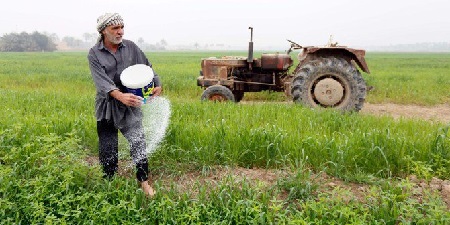 Iraq is under the influence of the circle of the equator, where high temperature and drought prevail. with a lack of rainfall in the summer. Therefore, agriculture depends primarily on the surface water needed for the stability and sustainability of agriculture, especially in the central and southern of the country.
Iraq is the Arab country most reliant on irrigation. Water resources
More
Iraq is under the influence of the circle of the equator, where high temperature and drought prevail. with a lack of rainfall in the summer. Therefore, agriculture depends primarily on the surface water needed for the stability and sustainability of agriculture, especially in the central and southern of the country.
Iraq is the Arab country most reliant on irrigation. Water resources
More
|
|
1st Arab Land Conference
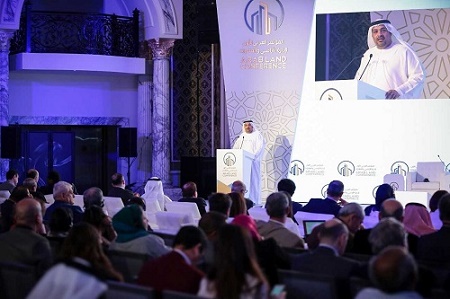 In early 2018, the Dubai Land Department played host to the 1st conference seeking solutions to the diverse challenges facing the land sector in the Arab world. The gathering, organized in partnership with the World Bank, the Global Land Tool Network, UN-Habitat, the League of Arab States and the Arab Surveying Association, was attended by more than 300 representatives of
More
In early 2018, the Dubai Land Department played host to the 1st conference seeking solutions to the diverse challenges facing the land sector in the Arab world. The gathering, organized in partnership with the World Bank, the Global Land Tool Network, UN-Habitat, the League of Arab States and the Arab Surveying Association, was attended by more than 300 representatives of
More
|
|
Practicing Agroecology in Iran
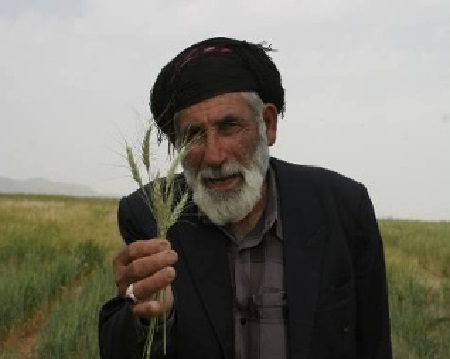 Driven by modern plant breeding, seed systems and the functioning of global markets in the past decades, agricultural production and food systems have shifted toward uniformity. Modern varieties, developed under high-input agricultural system, do not always perform well in marginal conditions and poor lands under the effects of climate change. The smallholder farmers in low-input production systems are most vulnerable
More
Driven by modern plant breeding, seed systems and the functioning of global markets in the past decades, agricultural production and food systems have shifted toward uniformity. Modern varieties, developed under high-input agricultural system, do not always perform well in marginal conditions and poor lands under the effects of climate change. The smallholder farmers in low-input production systems are most vulnerable
More
|
|
Continuum of Apartheid in Israeli Legislation
 The Follow-up Committee raised the dangers of the Nation-State Law at the UN Human Rights Council at Geneva on 21 September 2018
GENEVA—A delegation from the Higher Follow-up Committee of the Arab community in the country recently participated in a central international symposium at the Human Rights Council in Geneva.
The seminar focused on the Jewish Nation-State Law and its dangers to
More
The Follow-up Committee raised the dangers of the Nation-State Law at the UN Human Rights Council at Geneva on 21 September 2018
GENEVA—A delegation from the Higher Follow-up Committee of the Arab community in the country recently participated in a central international symposium at the Human Rights Council in Geneva.
The seminar focused on the Jewish Nation-State Law and its dangers to
More
|
|
Sanctuary in the City: Beirut
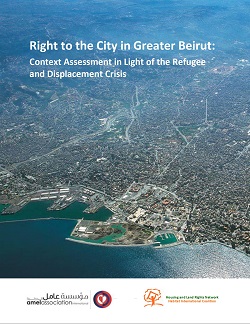 HLRN recently has completed a joint project with Amel Association (Lebanon) to raise the prospect of improved municipal governance and assess the related needs of local government and authorities in the context of the refugee and displacement crisis in Greater Beirut. With support from Cities Alliance and in cooperation with United Cities and Local Governments (UCLG) the project represents the
More
HLRN recently has completed a joint project with Amel Association (Lebanon) to raise the prospect of improved municipal governance and assess the related needs of local government and authorities in the context of the refugee and displacement crisis in Greater Beirut. With support from Cities Alliance and in cooperation with United Cities and Local Governments (UCLG) the project represents the
More
|
|
Land Forum VI: Applying the Tenure Governance Guidelines
 Housing and Land Rights Network - International Habitat Coalition (HIC-HLRN) has been seeking ways for civil society to take a leading role in applying the international norms for the governance of land tenure. On 25–28 October 2017, HIC-HLRN cooperated with FAO to organize the sixth round of the Land Forum in Middle East/North Africa, in Tunis, where 27 representatives of
More
Housing and Land Rights Network - International Habitat Coalition (HIC-HLRN) has been seeking ways for civil society to take a leading role in applying the international norms for the governance of land tenure. On 25–28 October 2017, HIC-HLRN cooperated with FAO to organize the sixth round of the Land Forum in Middle East/North Africa, in Tunis, where 27 representatives of
More
|
|
|
|
|
|
|
Planning for Food Sovereignty 2018
 The International Planning Committee for Food Sovereignty (IPC) as an autonomous and self-organized global platform of more than 800 small-scale food producers and rural workers organizations and grassroots/community-based organizations and social movements advancing the food-sovereignty agenda at the global and regional level. It was established in 2003 in response to the global policy-level reduction of the vital issue of agriculture
More
The International Planning Committee for Food Sovereignty (IPC) as an autonomous and self-organized global platform of more than 800 small-scale food producers and rural workers organizations and grassroots/community-based organizations and social movements advancing the food-sovereignty agenda at the global and regional level. It was established in 2003 in response to the global policy-level reduction of the vital issue of agriculture
More
|
Introducing the Human Rights Habitat Observatory
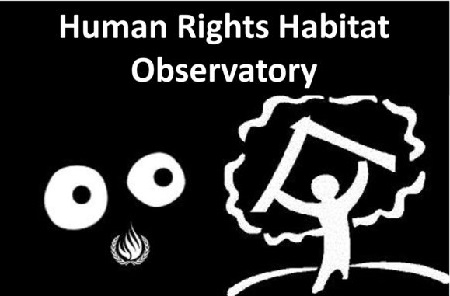
Habitat International Coalition (HIC) has mounted a new collective effort to pose solutions and influence national and international debates and efforts to implement, monitor and evaluate the new global agendas and human rights norms at once. These multiple frameworks include the 2030 Sustainable Development Agenda and its Goals (SDGs), the Paris Agreement on climate change and the New Urban Agenda
More
|
|
HLRN @ HLPF
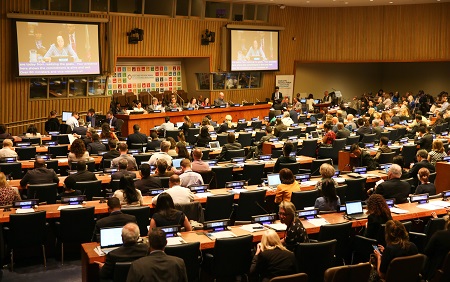
Characteristically, HLRN and HIC made their presence both inside and outside the High-level Political Forum (HLPF) at UN Headquarters, New York, 11–19 July 2017. HLRN applied the Human Rights Habitat (HRHO) approach in reviewing state SDG progress reports. (See Introducing the Human Rights Habitat Observatory in this issue.) HIC President and Secretariat co-organized a side event with the Global Platform
More
|
|
The Rush for Land Indicators

One of the challenges to monitoring progress toward the 2030 Agenda’s 17 Sustainable Development Goals (SDGs) is the agreement around performance indicators. Although this exercise has advanced for many indicators for tracking progress, the performance indicators against Targets related to land remain incomplete. In this third year of the Agenda’s implementation, the need for states’ agreement on the indicators is
More
|
|
Measuring Impacts on Kenyan Women
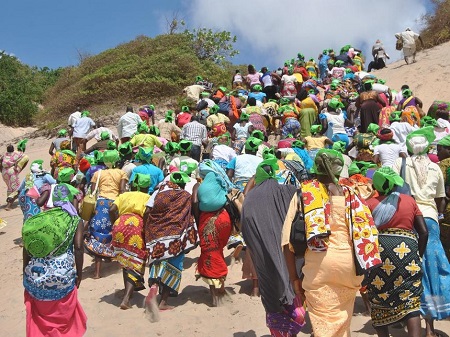
Since HLRN began systematically monitoring and mapping housing and land rights violations through its Violation Database in 2006, HLRN has observed many patterns. The data collected has formed the basis of HLRN reports issued on the occasion of Habitat Day.
One of the challenges to effective reporting on violations—whether forced eviction, dispossession, destruction or the negative impacts of privatization—is providing detail
More
|
|
“The Shift” to Human Rights-based Housing
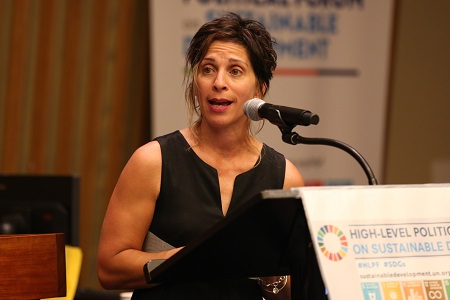
At the October 2016 Habitat III Conference at Quito, the current UN Special Rapporteur on adequate housing Leilani Farha launched a campaign promoting a human rights-based approach to housing and housing policy for states. She calls this alternative to the persistent mainstream notions about housing “the shift.” Accordingly, she is joined by housing rights advocates everywhere in seeking both conceptual
More
|
|
|
|
|
|
|
| Terminology Corner |
| Contributors to this Land Times |
|
Banner photo: The land in Iraq’s Dhi Qar Governorate left dry from drought mainly caused by the lack of rainfall and hyro-dam projects in neighbor Turkey and Iran.
Source: al-Nasiriyya . |
|
|





